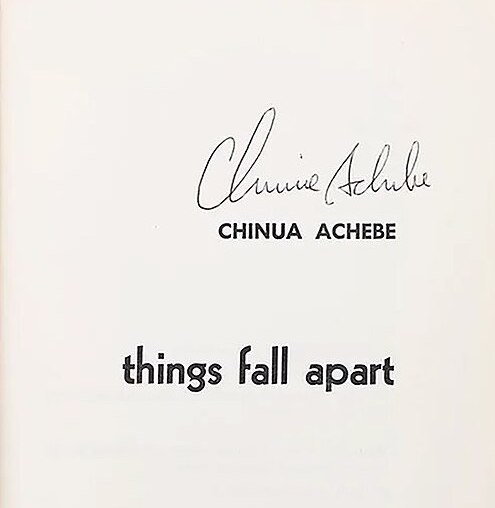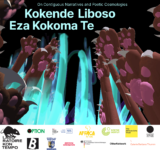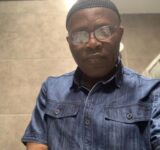Serubiri Moses
“No one who loves life would wish to imitate her dedication to martyrdom
nor would wish it for his children nor for anyone else whom he loves.”
– Susan Sontag, Simone Weil (New York Review of Books)
To be brutally honest, the vast legacy of much thought of African intellectuals in the 1960s has been destroyed. Trying to recreate that world would be a little insane, and at worst ineffectual. Looking back on that time is like going on an archeological mission to dig up relics. For example, if you went to Makerere University today searching for the glorious intellectual precinct that nurtured so many of Africa’s intellectuals, you’d be mortified to see the state it is in. It is a kind of ghost-land as opposed to wasteland. We cannot see anything real. It is true that it is people that make a house a home and not a mere structure with thousands of manuscripts. All of that was destroyed. This is the same for so many other precincts of African intellectualism around Africa in the aftermath of that time period, as is summarized in much of Heinemann’s AWS series.
It is madness trying to exist in that time now as so many people within African
Literature attempt to. They attempt to imagine that everything between the 1960s and today did not happen; that they can simply swim in the bath of ghosts of time past. I do not say this to mock those who are still alive, but surely even they should be still in the aftershock of seeing such greatness and then watching it crumple before their eyes. How does one consolidate or resolve the memory of such a glorious era with what is happening today? How do we explain the void? More importantly, how do we understand it? Do we understand it? Do we know that the 60s are over?
Having been fully aware, forced to be a part of the development of political society, and contributing towards manpower, the 1970s and 80s were shaped much more by Marxism. The necessary “direct domination” that political society requires is what enabled much of the corruption that Fela Kuti writes about that flourished within Nigeria, for example. Those, indeed, are the practicalities of political society. While poring over the zeitgeist of the post-independence era, I cannot help but complain about the patriarchy that arises out of the practicalities of one such political society, and I have since failed to discover any real female figure of Pan Africanism whose key impact lasted the transition from civil to political society; from intellectualism to war and genocide.
To my delight, I came across a figure in recent Ugandan history that stuns for the mere fact that it is almost entirely outside the precinct of 1960s African intellectualism and yet emerges as a war hero, spiritual healer and witch. This Helen of Troy character embodies a consciousness that resonates more deeply today than that of the 1960s, with her abstraction of tribal identity, prophetic savior complex and militarization.
On those boundless sugar plantations in Jinja during the month of grasshoppers in 1987, Alice Lakwena led her army of 10,000 to war with the NRM forces. Her head swirling with ghosts that prophesied the Second Coming, her soldiers smeared in nut oil, Lakwena was unlike any other African intellectual that gave up theory for warfare.
If for any other reason, it is this that I admire her for. That she existed outside the time capsule of African Nationalism. She believed that the Acholi people would become the cause to liberate Uganda, but it was not the same liberation philosophy of Marcus Garvey or the African Communists of FRELIMO. This was an under-educated woman who had made a living out of prostitution prior to the war. She contradicted the very laws of Communism. How would such a figure lead Uganda to liberation? It was only possible outside the 1960s.
It is said that Lakwena, once possessed by an Italian spirit of a 19th century Italian soldier disappeared into the forest reserve outside Gulu town and months later came back with the ability of prophecy and spiritual healing. Lakwena, is an Acholi word for messenger, and it actually was the name that people began to address Alice at once as she came back from the bush. Her rituals involved the abstraction of Catholic ritual with Acholi spirituality. When she had amassed a number of followers, she convinced them— at the guidance of the Italian spirit— that they should lead Uganda to liberation. These ideas of liberation through religion are not unique to Lakwena and are widespread in Uganda.
As much as it is a fantastical thought, can we read about such characters who do not exist primarily as surrealist creatures of Negritude? Jean Paul Sartre in his study of Negritude poet Aime Césaire has made the useful distinction between Surrealism as it occurred in Paris and Césaire’s surrealist poetry. He speaks of the multifaceted expression of surrealism not being limited to the frénésie of Césaire’s poetry whose aim is to ‘make manifest the black soul’. Can we engage with characters who are not burdened with the impossible questions of Negritude; characters who lived long fruitful lives long before Negritude existed?
Because the heroes we were shown at school by our primary and secondary school teachers were Obi Okonkwo from No Longer At Ease (1960) and Ocol from Song of Lawino (1966), many of us cannot relate to anything else. Our imagination has been limited to these basic characters with the fundamentalism of a national curriculum. These are the texts that truly initiate us into the service of political society. This is how to participate in the liberation of one’s country. We must learn that if things must be done, they must be done Bakayoko’s way (the protagonist from God’s Bits of Wood (1960)) — with the calculated indifference that he has to every ounce of the pleasures in Dakar or Bamako. We have had to learn that pleasure is always a guilty pleasure. If it must be done, it must be done in secret.
Much as these novelists— Sembene, Achebe, Ngugi, p’Bitek— seemed proud of Africa’s cultural heritage, their practical use for Africanness was superficial.
Africa, the real Africa, did not exist for them. It was only exciting on the frontiers of manuscript paper where it was bandied about in anti-colonial theory. As such these novels can rightly be studied, read or analyzed as postcolonial theory.
This approach to Africa was also the manner of, African American essayist, Alain Locke who dreamed of a separate nation of Black America that bolstered the sophistication of Black culture, music and intellectualism as a weapon of protest against the domineering Eurocentric culture, intellectualism and lifestyle of 1920s America. The best way to find an intellectual space of their own was through politics.
African writer-politicians drew immense inspiration from Locke and W.E.B DuBois, the latter who believed a Black America was impossible to achieve in the United States and went on to sell the idea to Africans and Afro-Caribbeans in Paris. The emerging “Black Diaspora” of the 1930s comprising of various intellectuals from all around the world of black skin color was progress towards Black nationhood, only through intellectual discourse. Paris has therefore been the dream of many a black intellectual, including the composer-pianist Nina Simone who died in France, and remains— for the New African intellectual— a kind of cultural heaven as a meeting place for photographers, essayists, jazz musicians, dancers and more.
Kwame Nkrumah, a Ghanaian writer-politician, took DuBois’ philosophy to heart which asserted that in order for African Americans to attain the level of intellectual freedom he dreamed of, they would have to go through innovations of science and technology. That legacy, widely propagated in Africa by Nkrumah, has led to a definition of Africanness that involves science and technology at the forefront of intellectualism or cultural livelihood, which has strongly been patronized and advanced by Capitalism.
The marriage between Capitalism and Technology has produced a barricade that continues to feed into the divide between village Africanness and new Corporate Capitalist Africanness. It is, for me, no different from the ideas of Ocol from Song of Lawino in particular, especially since Song of Ocol seemed to naturally metamorphose into Song of Soldier, a praise song for Black Nationalism and war technology for Africans. That unfinished text confuses Africanness with Marxism, European Nationalism and advanced war technology from the Cold War. In hindsight of the hero-making of Ocol, what is Africanness then?
On speaking to and reading David Kaiza’s comments on the African Writers
Series in Transition Magazine’s 50th anniversary issue, I realized that Africanness was a collective forgetfulness. The phenomenon in which real people have the memory of being Obi Okonkwo from No Longer At Ease, Mugo from A Grain of Wheat, Ocol from Song of Lawino or Bakayoko from God’s Bits of Wood with utmost faith, has secured a forgetfulness and indifference that feeds directly into the matrix of Uganda’s social psychology.
Similar to Ugandan poet-politician Okot p’Bitek’s worship of African soldiers in Song of Soldier (1986, Heinemann Kenya) is Senegalese poet-politician Leopold Sénghor’s hero-worshipping of African American soldiers that he saw in Paris during the 1940s.
‘Black Martyrs O undying race, give me leave to say the words which will forgive.
No, you are the messengers of his mercy, breath of Spring after Winter …
You are the clay and the plasma of the world’s virid spring
Flesh you are of the first couple, the fertile belly, milk and sperm.’
from “Murders” by Leopold Sénghor
Even though comparing the two poems by two separate writers from very different parts of Africa appears to be incoherent, the similarities between them far outweigh the differences. Both of the poems are themed on war. They seem—not exactly— to worship the act of war as much as the object of war, the soldier that goes into battle. Both poems allude so much to this soldier’s skin color, their background or their heritage that they sequentially affix this quality to ideas of sainthood, sanctity or sacredness. Sénghor vividly alludes to this soldier being a child of Adam and Eve from the Bible. Because they both do not give their reasons why, I think it a utilitarian act that sweeps up all peoples of black skin color in this poetic object of war.
It is this sweeping generalization in both texts that comes across as pure madness. Their definition of Africanness involves a kind of super humanness that reminds me of Nietzsche’s Ubermensch and Descartes’ “Cogito ergo sum”. With both philosophies, there is an abundance of ego that culminates into an exaggerated form of self-worship. It is the kind which can be found in poet critic Wanda Coleman’s reading of the poem “Ghede” by Nathaniel Mackey in an essay that theorizes the African American minority, ‘On Theloniousism’. “Ghede is a full-fledged God with the powers of life and death. In his play, Mackey effectively digs deeper to the root of Blackness— yet clearly echoes the assertion of ‘I am’ … “It leaves me wondering about these unreachable states of African-humanness. Reproducing Mackey’s poem here would be ineffective because its language is perhaps over specific to the Haitian Voodoo religion that inspired it. But I feel that the poem successfully complicates the idea of Africanness by its definition as “a full-fledged God with the powers of life and death.”
It is unclear whether these definitions can at all find meaningful ways of being attached to Africa or to the livelihood of present day Africans. But if not real present day Africans, then maybe to their heroes Obi Okonkwo, Ocol and Bakayoko among others. It is these characters however, who are largely acknowledged as ‘The New Africans’, an expression credited to Kwame Nkrumah and derived from Alain Locke’s 1925 phrase ‘The New Negro’.
But when thinking of (The New African) characters like Njoroge of James
Ngugi’s The Martyr who bear an otherworldliness and for whom being
African is deeply contradictory like it is for Ocol in “Song of Ocol”; whose lives are in an infinite space of their own, I question both their inherent Africanness and inherent sacredness in regards to the plethora of various religious or sacred martyrs in recent African history, many of whom are not considered New Africans such as— whether rightly or wrongly—Alice Lakwena.
I ask the New African, what has ‘vitality and uniquenes’ got to do with the near sanctity, sacredness or holiness of being African? How did the mere affirmation of the existence of culture, of ethnicity, of common values, became a cult faith of its own? How did the New African become God?
James Ngugi was raised during the Mau Mau struggle (also called the period of emergency) in Kenya from 1952 to 1960 that both his brother and mother were caught up in. These experiences are sharply reflected in The Martyr. The very first words of significance that the protagonist utters, ‘I hate them! I hate them!’ indicate the righteous anger as well as this Marxist utilitarianism evident in several African postcolonial texts.
At a decisive change in faith and morality (perhaps in the Mau Mau creed) at the owl cry from Njoroge’s former self to seeing his plantation boss Mrs. Hill suddenly transform into ‘a woman, a wife, somebody like Njen or Wambuu, and above all, a mother’— we are left wondering then what truly qualifies Njoroge as a martyr. Being that the story ends in Njoroge’s death, and knowing that as with any cult, breaking its oath would lead to serious consequences like death. However, can Njoroge still become a martyr after losing his faith? It is clear to me that the use of religious sacredness in such texts is similar to the use of Africanness in such characters as Ocol, Obi or Bakayoko and numerous other characters with the sole aim of drawing political arguments against colonialism.
Kaiza has noted that these characters do not breathe, sigh or think like sentient beings. Instead, they are immortal beings. Black Martyrs of La Race Immortelle. This politically inspired move (through persons like Leopold Senghor and Kwame Nkrumah) superimposes Locke’s exegesis of The New Negro in Africa where presently, contrary to the super humanness of these characters, people who believe in God exist, so do people who continue to die in religious wars across the continent, and so does the existence of holy martyrs. The truth is— in the real world— not everyone believes in Martyrs that die solely for the cause of Black, African or Negro sacredness.
It is no wonder that so many New Africans are currently exiled physically, psychologically and emotionally from Africa. They cannot stand the reality of 21st century Africa, perhaps because people on the continent are even more engrossed with God than ever before. They cannot theorize or rationalize narratives that involve both a real God and human freedom or liberation. They cannot reconcile modern African history with the reality of the fabricated world of their novels. With characters who cannot exist, breath, sigh or think without desiring to be unburdened of the impossible Lockeian question, Who am I in this white world? The truth is— and many young writers on the continent are realizing this— that the African story does not have to be answerable to a supreme deity of Africanness.







It is with the help of articles like this that we become liberated from our historical “African” shackles. Love it.
The article gets me thinking deeply. Indeed there are many things that we have forgotten. We have been made to believe that whatever happened in the sixties and the seventies birthed the problems the country is facing today. We do not see beyond the politicians or what a handful of people write about. We should wake up before all is lost.